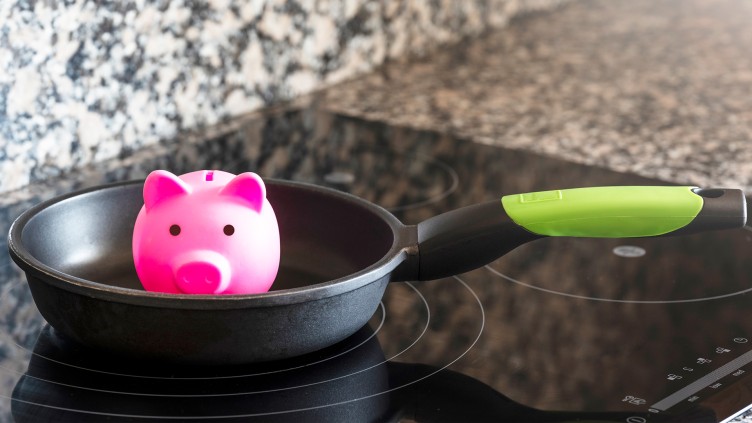


INCOME!













If you’ve been following the news, you’ll know that this winter is threatening to be a dark one. Higher stages of load shedding and the impact of electricity tariff increases means that many of us will be left in the dark and deeply out of pocket.
Saving on electricity can, however, soften the blow.
In this article, we share ways to reduce electricity in the biggest energy use categories typical of a household. Drawing on the well-researched resources from the Let’s Act campaign, we round up six simple and practical ways to save electricity (and your wallet) this winter. The last tip is our favourite, but we might be a bit biased. Read on to see why.
(Source: www.savingelectricity.org.za)
1. Insulate your home
As much as 40% of heat loss takes place through a home’s roof so ceiling insulation is a good place to start if you want to save on electricity. It’s estimated that insulation can make your home up to 5°C warmer in winter, saving up to 16% of the electricity you need annually. Going a step further by insulating your water pipes and using a geyser blanket can also reduce your costs by R500 or more a year.
If you can’t invest right now, make sure that you conserve your body heat with warm clothes and direct heat through things like the safe use of water bottles.
2. Reduce time spent on water heating
When looking for ways to save electricity, adjusting how you use hot water can make a significant difference. By simply dialling down your geyser’s temperature from 70˚C to 60˚C you can see a 5% reduction in your electricity bill. Using lower heating settings and skipping pre-wash cycles on your washing machine and dishwasher can reduce their hot water usage by 20%.
3. Choose the right appliances (and use them in the right way)
Energy-efficient appliances make the world of difference – to sustainability efforts and your energy usage. For appliances that work smarter and not harder, have a look at the South African Energy Efficiency website to explore the different energy efficiencies of appliances. For smart energy habits try out these handy household tips:
- Put bottles of water in your fridge and freezer. Water bottles ‘hold on to the cold’ so that your fridge and freezer don’t have to work as hard. This is also handy in preserving your food during those frustrating extended outages.
- Always do a full load of laundry but don’t overfill your washing machine. It takes the same amount of electricity to wash a full load of laundry as it does to wash a few items. Follow the appliance guidelines.
- Reinvest in the saying, ‘Now we’re cooking with gas’ by trying your hand at more efficient, load shedding safe gas cooking. Switching from gas to electricity also cuts the carbon footprint of stove-top cooking by about half.
4. Unplug electronic ‘energy vampires’
According to Direct Energy, watching TV or playing video games for an average amount of time, can use as much as 55kWh per month. Devices like your media equipment, gaming consoles and printers also draw energy through standby power – even when they’re not in use. Consider unplugging these devices when you aren’t using them as an additional way to save on your household electricity use.
5. Get your lighting right
Although lighting only contributes to about 10% of your household electricity consumption, good quality Light Emitting Diode (LED) lights can save up to 80 – 90% in electricity usage, in comparison to traditional incandescent lightbulbs and last up to 50x times longer making the switch worth it.
6. Switch to prepaid electricity
According to the Let’s Act campaign, studies have shown that greater ‘real-time’ awareness of electricity usage through prepaid metering encourages people to drop their consumption by about 10-12%. If you are already a prepaid meter user, how you choose to recharge can also give you more value for money. For example, if Enbaya Prepaid Meters customers recharge using the Autotility feature, only 5.85% goes towards what is called a channel fee compared to a 10% fee at retail outlets and a whopping 12.85% if they were to recharge through a bank cash deposit. This difference means more actual units of electricity for the customer.
By combining smart, responsible utility sub-metering with smarter energy use habits we can at the very least counter the effects of price increases and in the longer term, start the journey to living more sustainably.
Our journey started more than twenty years ago, helping our customers take power into their hands through prepaid submetering. If you’re considering prepaid utility sub-metering, we would be delighted to walk the path with you too. Contact us, today.
About Enbaya
Enbaya is a utility management company with a growing legacy of innovation in sub-metering products and values-aligned services delivered through Enbaya Meters, Enbaya Cloud and Enbaya Academy. Enbaya gives property investors, managers and developers access to innovative cloud-based utility management services, devices, and solutions for real-time access to fees, tariffs and reporting that puts the power back in their hands. For more information visit www.prepaidmeters.co.za

